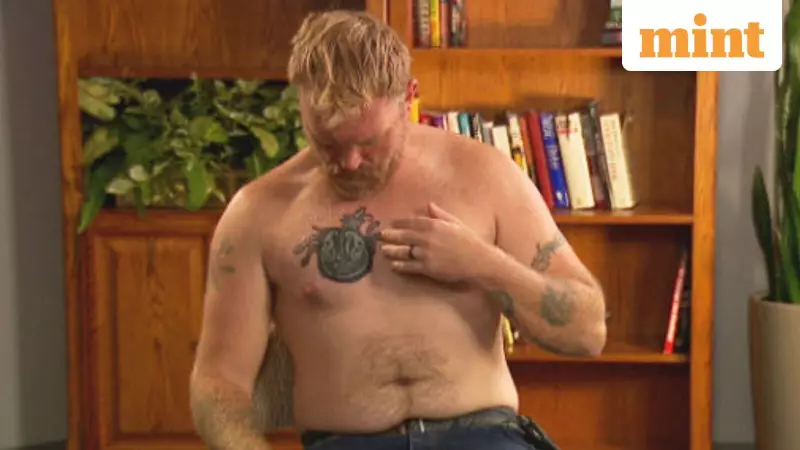
Graham Platner, a Democratic candidate for US Senate from Maine, finds himself embroiled in a significant political storm following revelations about his past social media activity and a tattoo that critics allege resembles Nazi symbols. The controversy has created deep divisions within the Democratic Party and led to multiple campaign staff resignations.
The Tattoo Controversy and Cover-Up Attempt
At the center of the storm is a skull-and-crossbones tattoo on Platner's chest that many have compared to Nazi imagery. The candidate claims he acquired the tattoo while intoxicated during his Marine service and was unaware of its potential symbolic meaning. After realizing the tattoo's controversial connections, Platner contacted tattoo artist Mischa Ostberg from Ellsworth seeking a cover-up.
"Hey, I have a tattoo. I found out it's something I don't want. Can you help me cover it up?" Platner reportedly asked Ostberg over the phone. The tattoo artist, who considers cover-ups routine work, agreed immediately and appreciated Platner's decision to address the mistake. Ostberg believes this incident demonstrates that Platner is an ordinary person who made an error and wanted to correct it.
The cover-up process presented challenges because the left side of Platner's chest was heavily inked. Ostberg first sketched the new design with a Sharpie before completing the artwork over several hours. The final result features a Celtic knot with a dog jumping out of it, chosen to reflect Platner's Scottish heritage and his affection for his two dogs.
Offensive Social Media History Exposed
Beyond the tattoo controversy, Platner faces scrutiny over his historical social media posts. Between 2018 and 2021, according to Associated Press reports, Platner posted homophobic slurs and anti-LGBTQ jokes. His old Reddit posts show him identifying as a communist while making derogatory comments about rural white Americans, whom he described as "racist and stupid."
Additional concerning posts include content that downplayed sexual assault within military ranks and contained abusive language toward police officers. Platner has since admitted that some of these offensive posts were merely attempts to "get a rise" out of other users, though this explanation has done little to quell the criticism.
Political Fallout and Campaign Consequences
The mounting controversies have triggered significant consequences for Platner's political ambitions. Several key campaign staff members resigned in October as the Democratic Party experienced internal divisions over supporting his candidacy. Platner must first compete against Maine Governor Janet Mills in the Democratic primary before potentially challenging Republican Susan Collins, who has long held the Senate seat.
The tattoo cover-up itself has faced public skepticism, with many questioning whether the original symbol was completely obscured and others mocking the new design. Ostberg defended her work, stating, "I actually put in a lot of time and effort, even if other people can't see it. I tried to make it personable to the person I know."
As the Senate race intensifies, Platner's past continues to overshadow his current campaign, raising questions about how these revelations will impact his chances in both the primary and potential general election contests.





